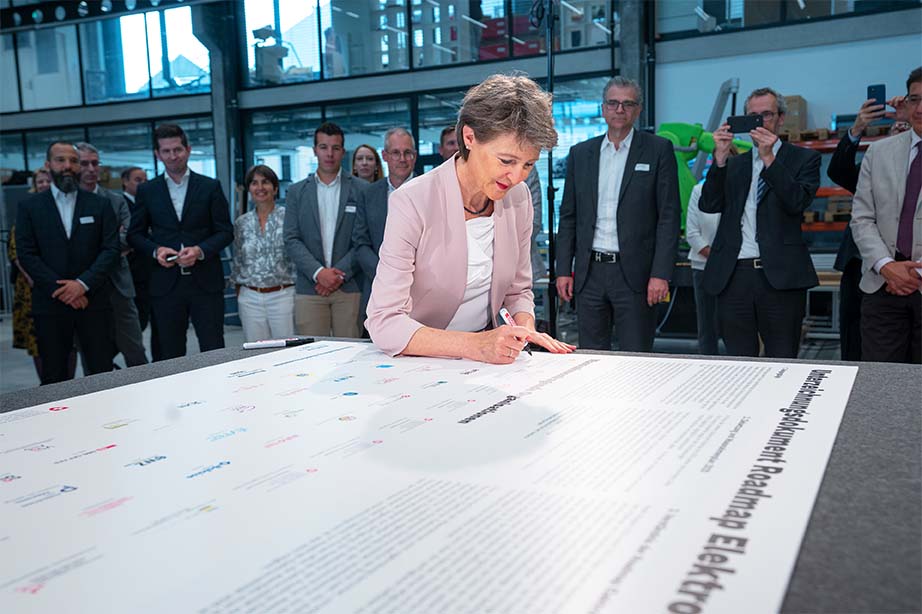For the Roadmap Electromobility, representatives of the economic and public sector have committed to jointly supporting electromobility. Now the initiative, which has been running successfully since 2018, is being strengthened and extended until 2025. The project CircuBAT is one of the measures to achieve the initiative’s ambitious goals.
On 16 May, the signing of the Roadmap Electromobility 2025 with new, ambitious goals took place at the Switzerland Innovation Park Biel/Bienne. A total of 59 organisations will contribute with 75 measures to achieve the new goals. At the heart of the new stage are the cross-stakeholder measures that address particularly relevant challenges: charging in multi-party buildings, charging in the neighbourhood and the circular economy of traction batteries. One of the measures is the CircuBAT project. With the aim of establishing a circular economy model for automotive lithium-ion batteries, it contributes to one of these particularly relevant challenges.
Roadmap Electromobility 2022 and 2025
The Roadmap Electromobility 2022 was signed in Bern on 18 December 2018. Almost three and a half years later, the roadmap can draw a positive balance. The goal of increasing the share of plug-in vehicles in new passenger car registrations to 15 percent in 2022 was already achieved at the beginning of 2021 and then significantly exceeded in the annual average of 2021 with almost 23 percent. Now the roadmap is being strengthened and extended until 2025. Three new targets have been defined for the new stage: By the end of 2025, the share of plug-in vehicles in new registrations is to reach 50 percent and 20,000 generally accessible charging stations are to be available. Additionally, the qualitative goal of “user-friendly and network-friendly charging – at home, at work and on the road” was also defined.
The Roadmap Electromobility was initiated by the Federal Department of the Environment, Transport, Energy and Communications (DETEC) in 2018. The activities of the roadmap are coordinated by the Swiss Federal Office of Energy (SFOE) and the Federal Roads Office (FEDRO).




